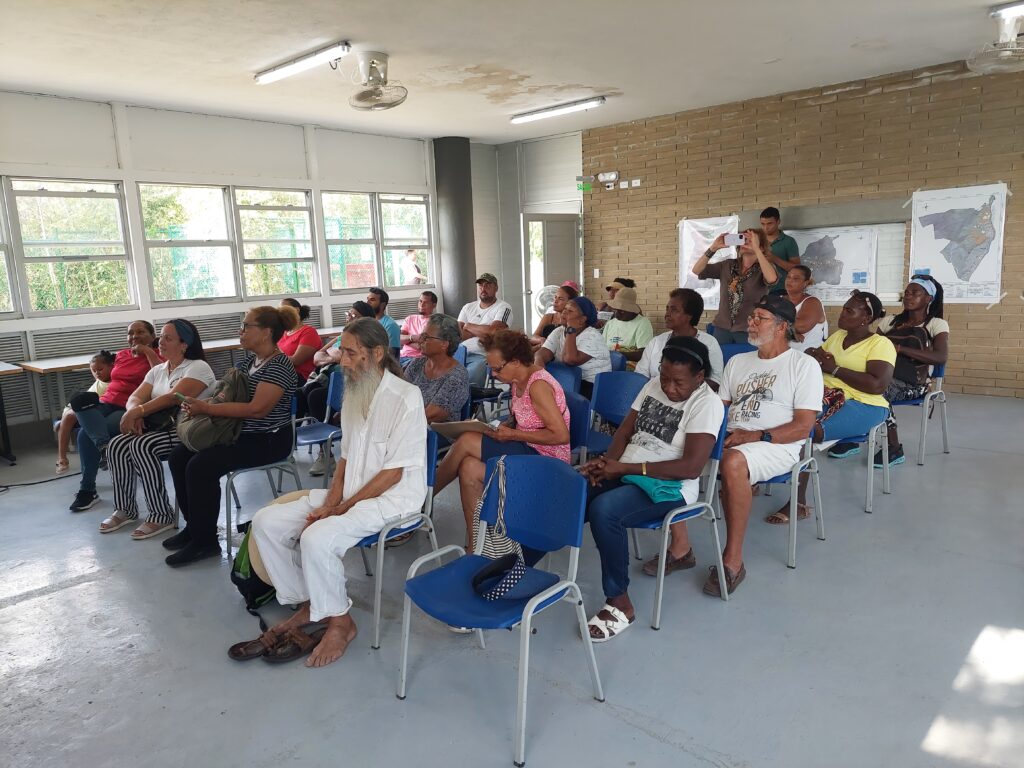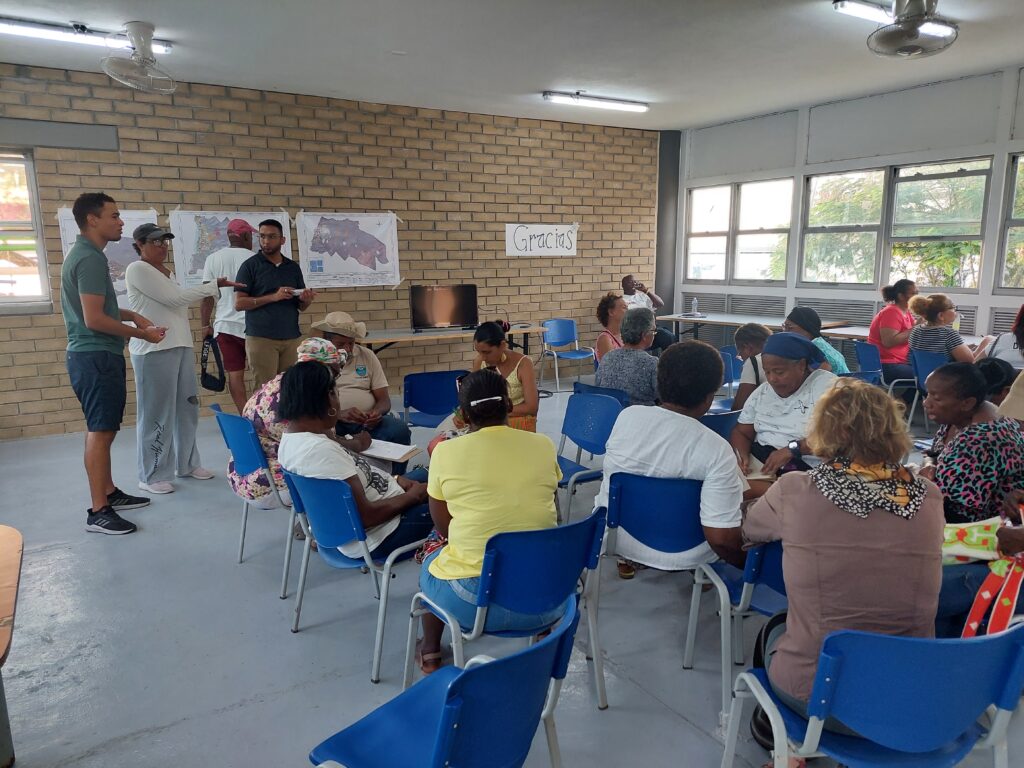Building Resilience: Highlights from a Workshop on Emergency Preparedness in Providence Island, colombian Caribbean
Natural disasters are a harsh reality for many islands in the Caribbean, and Providence Island in Colombia is no exception. In the aftermath of Hurricane IOTA in November 2020, ITACA Solutions, Fundación Providence and GITEC, with support from Open Society Foundations, organized a workshop to equip the local community with emergency preparedness knowledge and skills. Representatives from the Tobago Emergency and Management Agency (TEMA) were invited to share their expertise and insights, making it a unique knowledge exchange opportunity for Providence Island. Mr. Brian Thomas of the Tobago House of Assembly’s Tobago Emergency Management Agency (TEMA) and Anwar Baksh from the Office of Disaster Preparedness and Management, Trinidad, and Tobago, facilitated the discussion.
One key topic discussed during the workshop was the need for Providence Island to be integrated into regional planning efforts Despite sharing similar topography and being part of the Caribbean Sea, Providence Island often gets overlooked in the planning and preparedness initiatives for the region. The workshop emphasized the importance of including Providence Island in Caribbean-wide strategies for disaster preparedness and response.

Written by
Laura Canevari
CEO

-
Volunteer training
Was another crucial aspect of the workshop. Local community members were trained to become emergency response volunteers for their communities. The training included sensitization on the Incident Command System (ICS) and Community Emergency Response Team (CERT) training, providing them with essential skills and knowledge to effectively respond to emergencies in their communities.
-
Gender considerations
Were also highlighted during the workshop. It was recognized that disaster impacts can have different effects on men and women, and that gender-sensitive approaches are crucial in emergency response and recovery efforts. The workshop emphasized the need to incorporate gender considerations into emergency preparedness plans and protocols to ensure the needs of all community members are addressed.
The workshop also emphasized the consequences of rainfall events on Providence Island, which are well-known to the locals. Establishing an emergency response team was identified as a critical step towards building community cohesion and preparedness at the household and community levels. The importance of reporting during emergencies for government grants and assistance was also stressed, emphasizing the need for effective communication and coordination during disasters.
Another focus of the workshop was on equipping locals with the necessary equipment for emergency response. Fire, land, and sea rescue equipment kits were provided to the community members, along with sensitization on the proper use and maintenance of the equipment. It was also highlighted that while shelters on the island may have some equipment, individuals are encouraged to have their own emergency kits for added preparedness.
During the workshop, issues of trust in the government were discussed, based on past experiences of the local community. It was recognized that building trust between the community and the government is crucial for effective disaster preparedness and response efforts. Efforts were made to promote community engagement and planning for disasters, with a focus on identifying leaders and champions for incident commands within the community.
The importance of early warning systems was also highlighted during the workshop. In Tobago, frequent testing of their systems is carried out to ensure timely dissemination of information to the community. The workshop discussions also revealed that Providence Island often receives hurricane information late, relying on American or European weather models and updates. This highlights the need for improved communication and early warning systems for the island to better prepare for impending disasters.

The workshop also emphasized the concept of “building back better”. While preserving culture and existing architecture is important, incorporating hurricane-resistant measures such as hurricane straps and shutters in structural design was discussed as a way to minimize damages from future disasters. At the household level, the importance of having emergency kits in place was emphasized, and it was suggested that community efforts could also involve stocking emergency kits at shelters with clothing, food, toiletries, and other essential items.
Overall, the workshop on emergency preparedness in Providence Island was a valuable opportunity for knowledge exchange and community empowerment. It highlighted the need for integration of Providence Island into regional planning efforts, volunteer training, gender considerations, sensitization on emergency protocols and early warning systems, trust-building.

NEXT STEPS
The mission of Mr Baksh and Mr Thomas to the Archipelago also included a meeting with the Government of the Archipelago, with Mr. Kayan Howard, Secretary for Disaster Risk Reduction, and committed to supporting in reviewing and contributing to developing their local DRR policy. Similarly, they met with an officer of the Municipal Government on Old Providence, Martin Valderrama, Secretary for Sports, and Culture and discussed areas of support to develop a localized response plan and to develop trained personnel both within the government’s sector and communities as certified emergency response teams.
This month, islanders from Providence together with June Marie Mow from Providence Foundation and GITEC, and our CEO, Dr Canevari, will be visiting Trinidad and Tobago to continue the exchange, in an effort to deepen relations and improve the island’s response to climate-related disasters.
sign up our newsletter
ITACA Solutions is a technical services provider focused on implementing climate adaptation in coastal areas in the Caribbean. Sign up to our mailing list to receive our newsletter with updates about our work, publications, activities and events.
